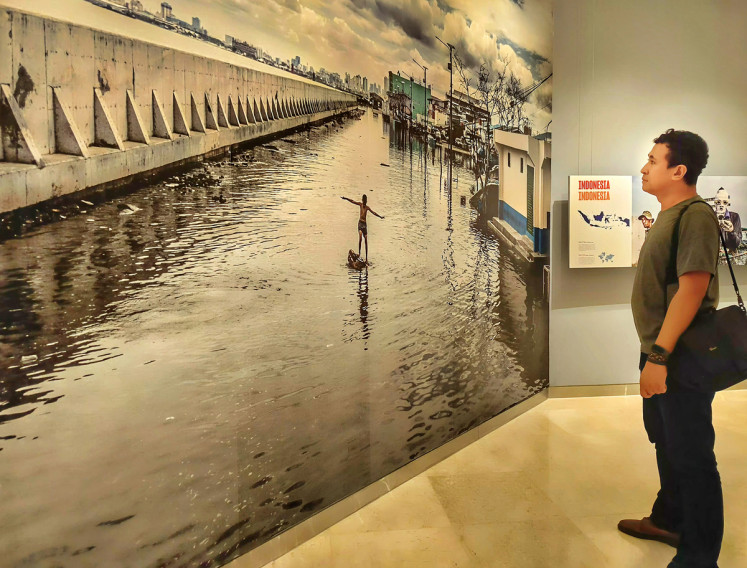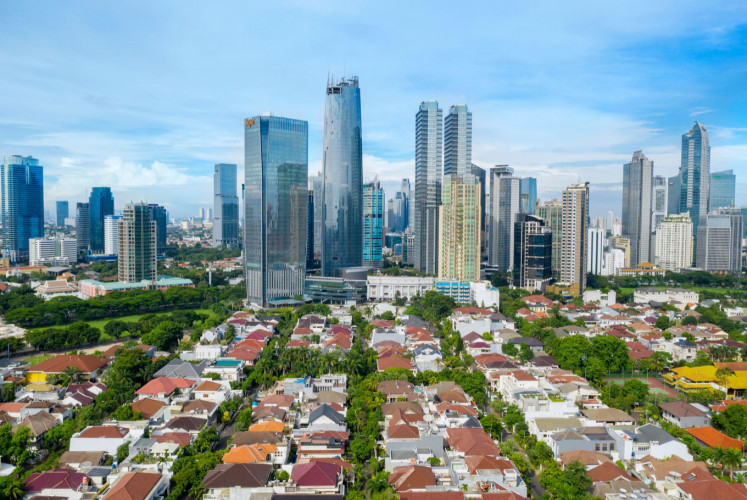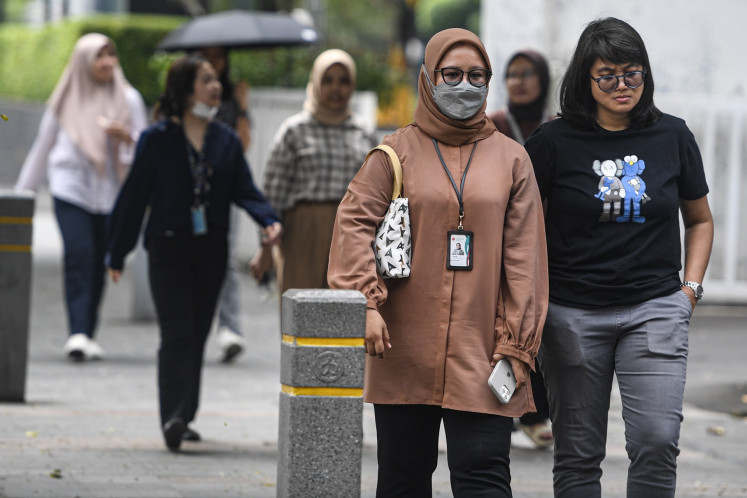Lessons from women’s emancipation in Saudi Arabia
The increasing freedoms and flexibilities Saudi women enjoy today offers a few pertinent lessons in social practices and behavior with respect to religious practices.
Change text size
Gift Premium Articles
to Anyone
 Safi, a 26-year-old Saudi Arabian physician sporting short hair, strikes a pose on June 19, 2022 near the Kingdom Centre skyscraper in downtown Riyadh. Short hairstyles are increasingly in vogue among working women in the conservative Gulf kingdom. (AFP/Fayez Nureldine)
Safi, a 26-year-old Saudi Arabian physician sporting short hair, strikes a pose on June 19, 2022 near the Kingdom Centre skyscraper in downtown Riyadh. Short hairstyles are increasingly in vogue among working women in the conservative Gulf kingdom. (AFP/Fayez Nureldine)
I
have been teaching (and researching) for more than 10 years at King Fahd University of Petroleum and Minerals, the top university in Saudi Arabia and the entire Arab region in the Middle East, according to the current QS World University Rankings. I have witnessed impressive transformation and change here, especially related to women’s development and emancipation.
There are various meanings of emancipation but in this essay, the term means a process of giving people social, cultural, educational and economic rights and freedom, liberating them from the stern control of other groups including parents, political authorities and religious establishments.
When I first arrived in Saudi Arabia, conservatism was still the dominant culture and practice in society. Public areas and facilities were strictly segregated by gender. There were female and male rooms or family and single areas in restaurants, cafes, public transportation and workplaces.
As for clothing, women wore black abayas and veils (niqab and other forms), except for girls. There were no concerts or other performing arts shows, and no movie theaters.
Moreover, the religious police or enforcers, known as Mutaween, were deployed throughout the country, especially in urban areas. Their main job was to enforce conservative Islamic values and norms of public behavior and practice, as defined by Saudi religious authorities, especially the Hai‘a (Committee for the Promotion of Virtue and the Prevention of Vice).
They also watched over women who did not wear hijab in public places. If they saw women not wearing abaya and hijab in public, they would catch and lecture them. My colleague’s wife, a Westerner, once had this unpleasant experience.
Saudi women’s roles and participation in public affairs were uncommon. With a few exceptions, almost all public facilities (shopping malls, markets, higher educational institutions, etc.) were controlled and staffed by men. My university was also entirely populated, dominated and staffed by men, except in housing compounds for faculty members and their families.


















